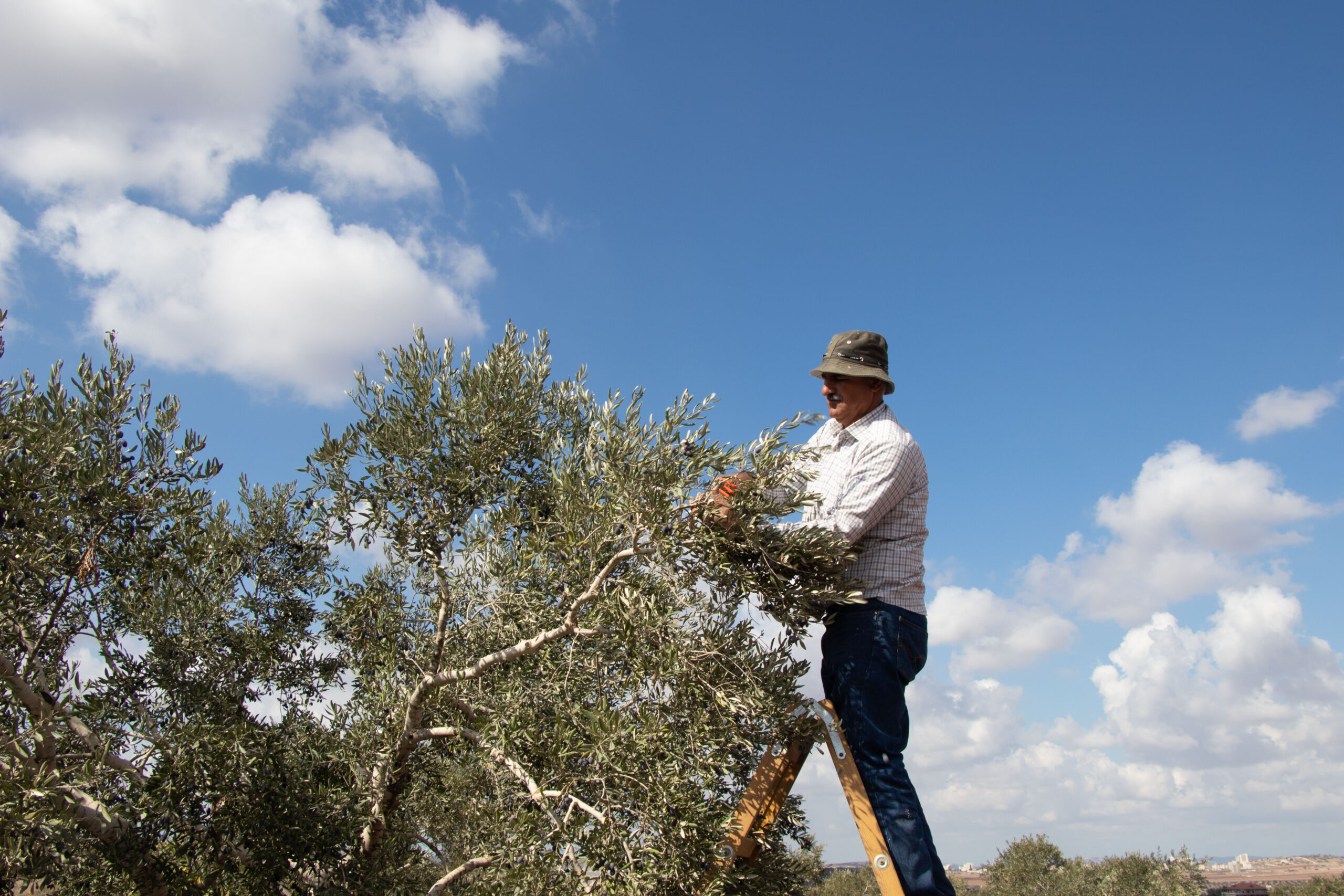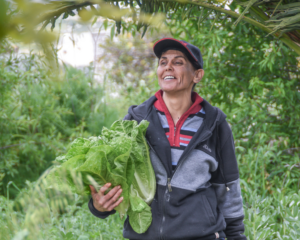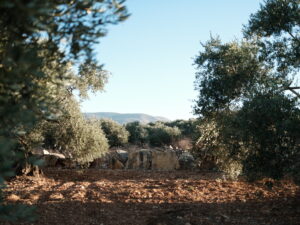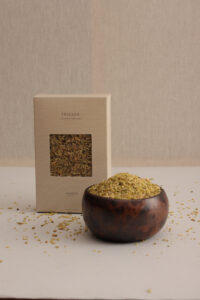12 kilometers from Jenin sits the village of Raba and in it, Jaafar Qassrawi’s family olive farm. For Jaafar, the olive farm is much more than a livelihood – it’s a beloved home. The farmer grew up in a traditional stone dome house with his family and five siblings and now stewards the family farm using the same sustainable farming practices that were handed down to him by his parents.
Of Raba, he says, “The love of the land knows no bounds.”
This ancient land is an archaeological and historical region, full of art, green spaces, and narrow alleys. Here’s a peek into Jaafar’s Raba and what the fair trade olive farm means for him and his family.
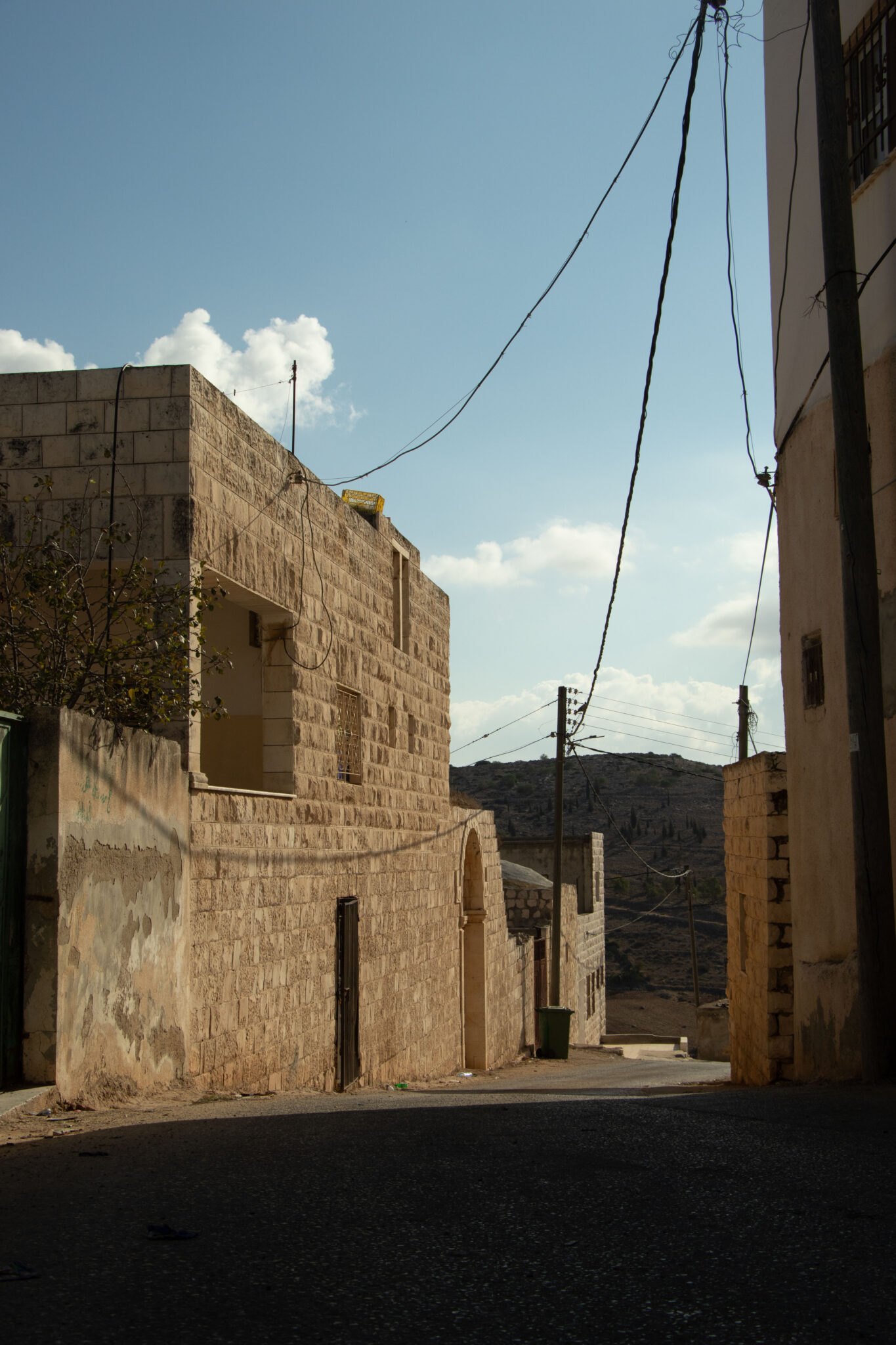
Raba: The Village at the Top of The Hill
Raba is a village with an incredibly rich history, named from the Canaanite origin “rabeet,” meaning hill or top of the hill. The village wears its name well, as it sits 500 meters above sea level on Jabal Buziq, the highest mountain in the Jenin area. From Raba, you can look down into the Jordan Valley that connects with the Jordan Mountain Ridge, all the way to the Jenin area.
With about 25% of its 6,500 acres dedicated to olive cultivation, the people of Raba depend on the sustainable farming of olives for much of their economy. About 40% of the 4,500 people who live in the village work in agriculture.
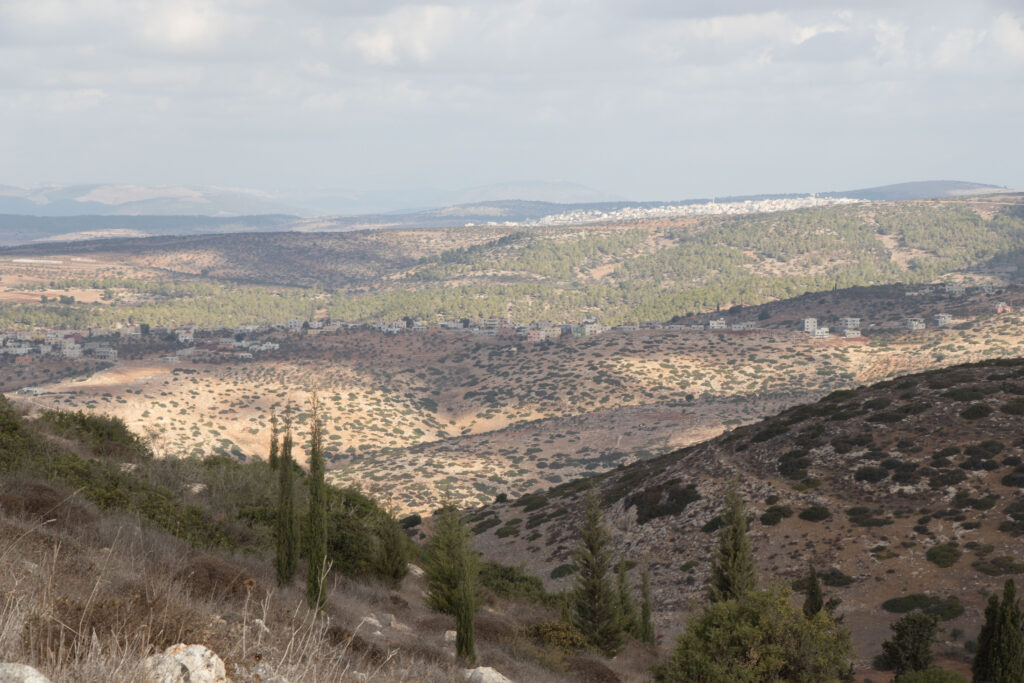
The agricultural practices in Raba can be traced back for generations and the history of the village can be seen everywhere you go. Along with the rest of Palestine, Raba was incorporated with the Ottoman empire back in 1517. Even this long ago, there are records of the growing and selling of olives and olive oil. Pottery dating back to the Byzantine, Hellenistic, Persian, Roman, and Middle Ages has been found in the village.
Historically, the village has acted as a passage from the Jordan valley to the Jenin area through Wadi Shubash. This passage connects the Jordan Valley, which sits below sea level, to the bottom of the village’s hill. We can see much of Raba’s history today, as archaeological and historical sites remain present. While the village maintains many traditional, ancient stone homes, it is also marked with stone ruins on several sides of the village.
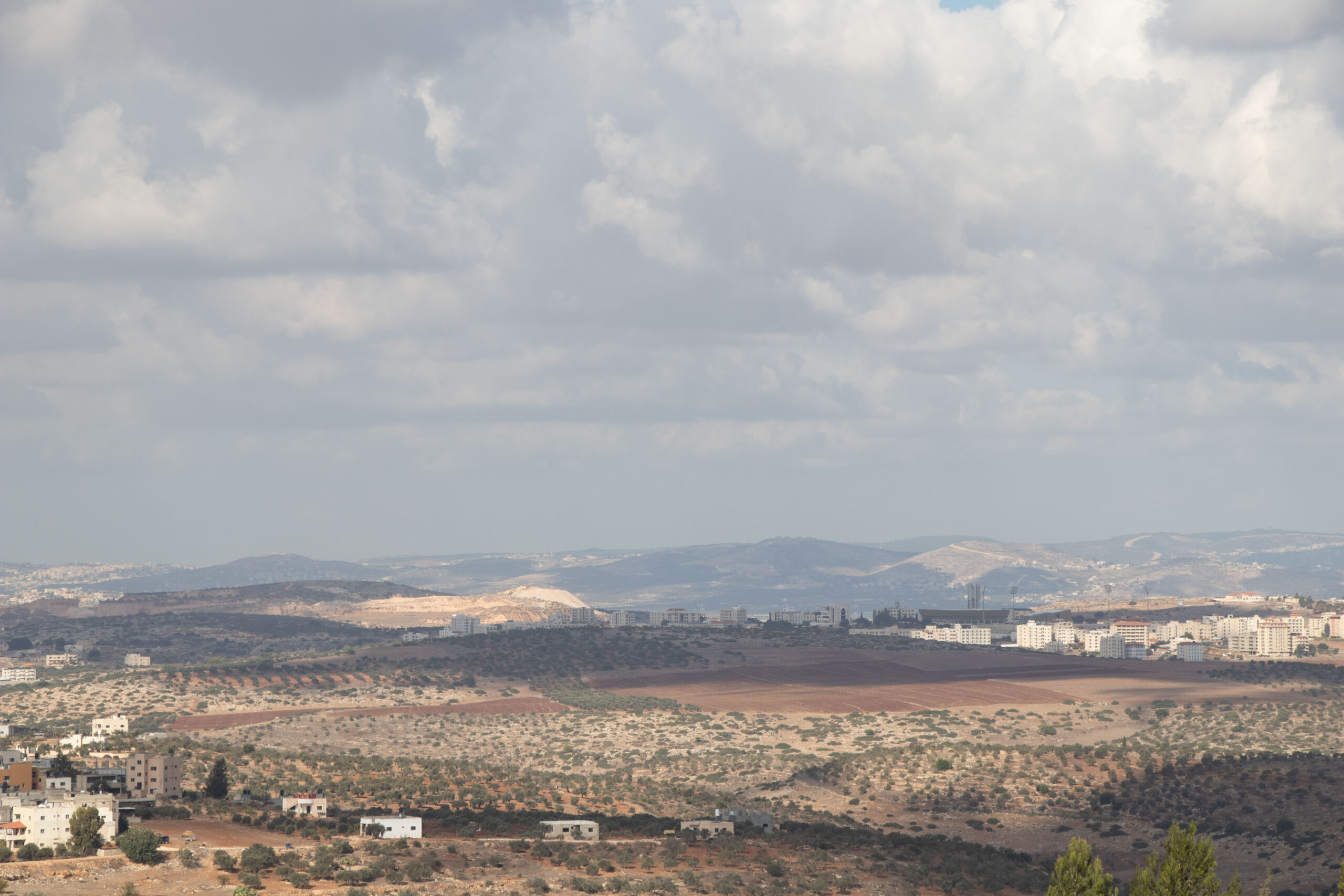
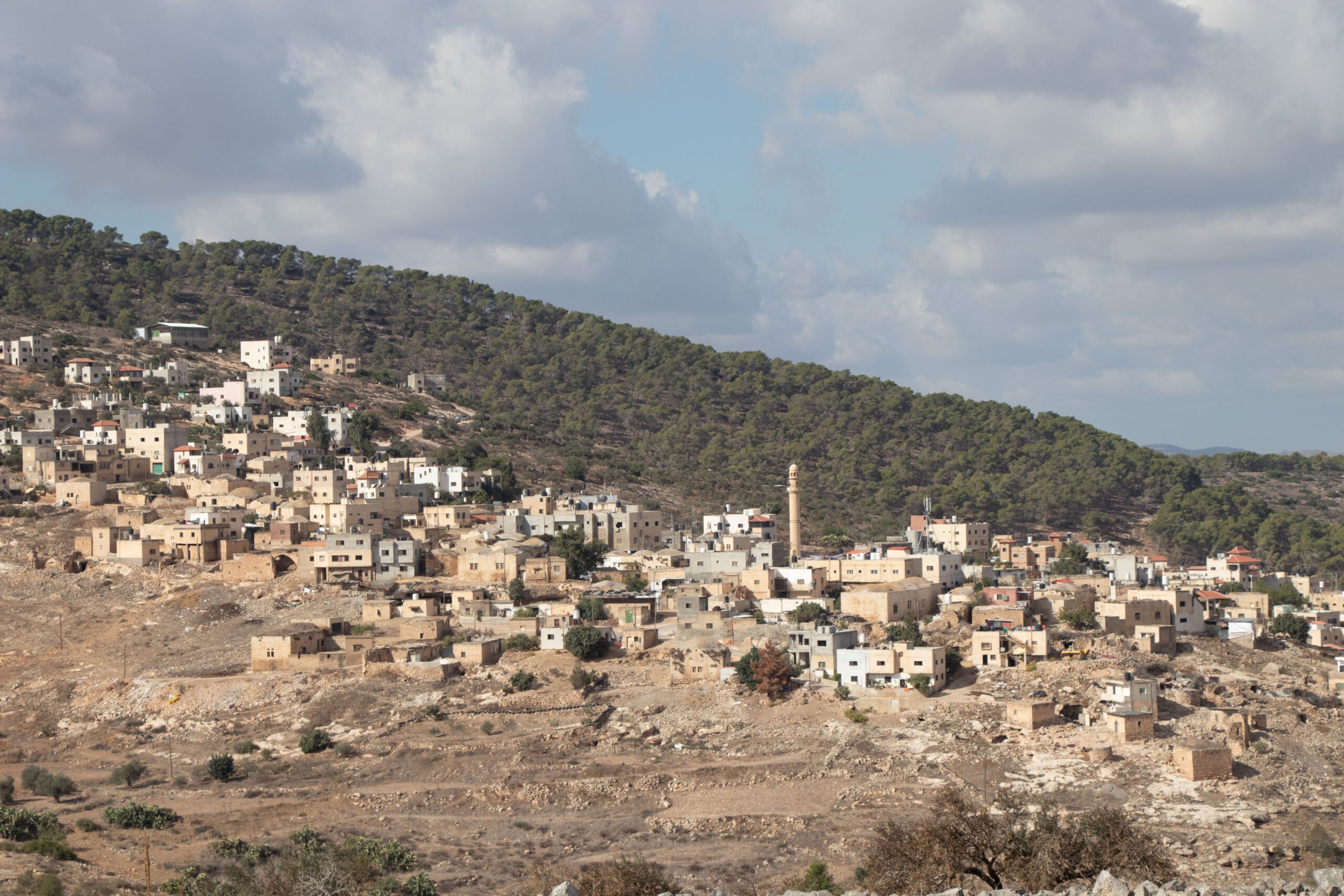
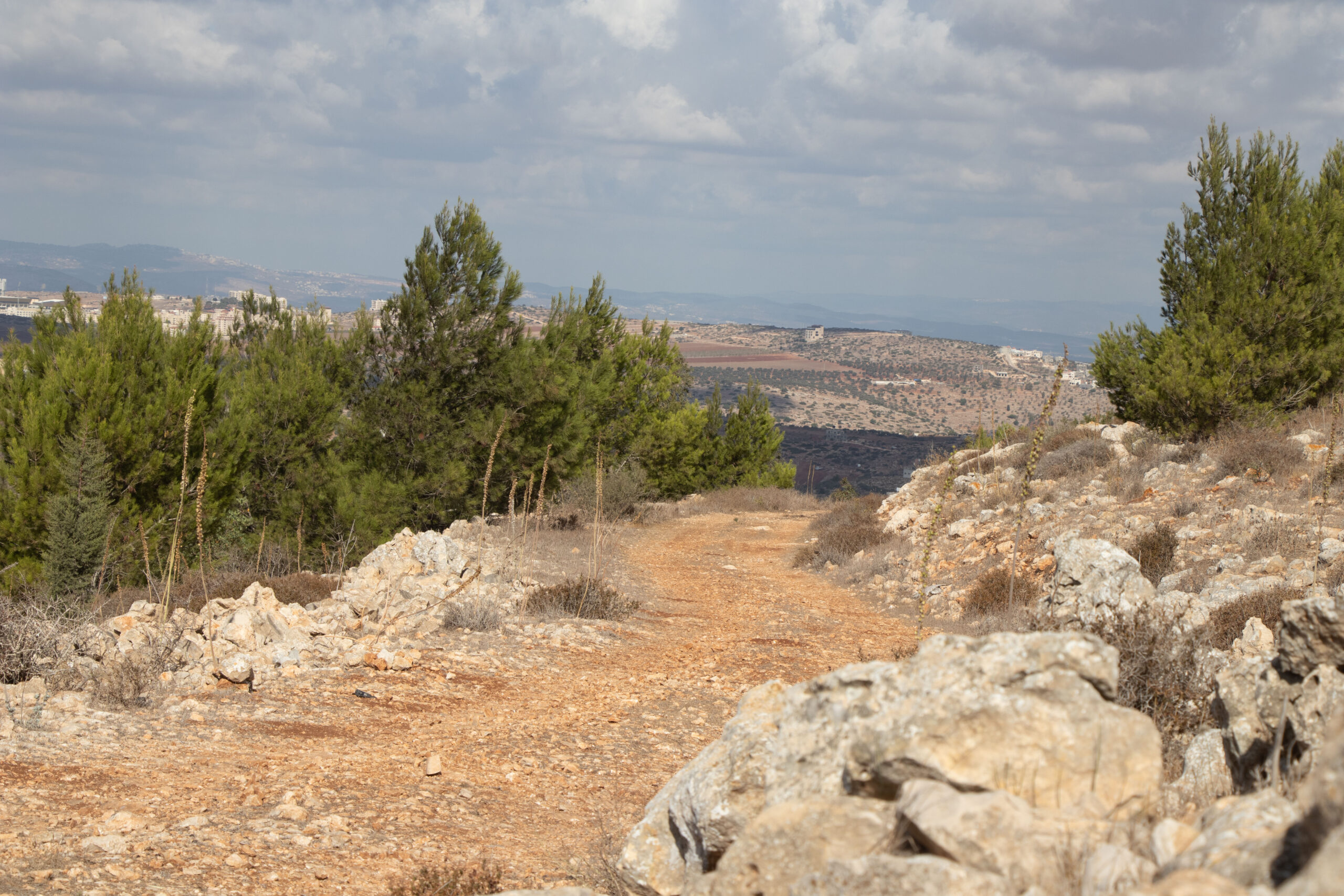
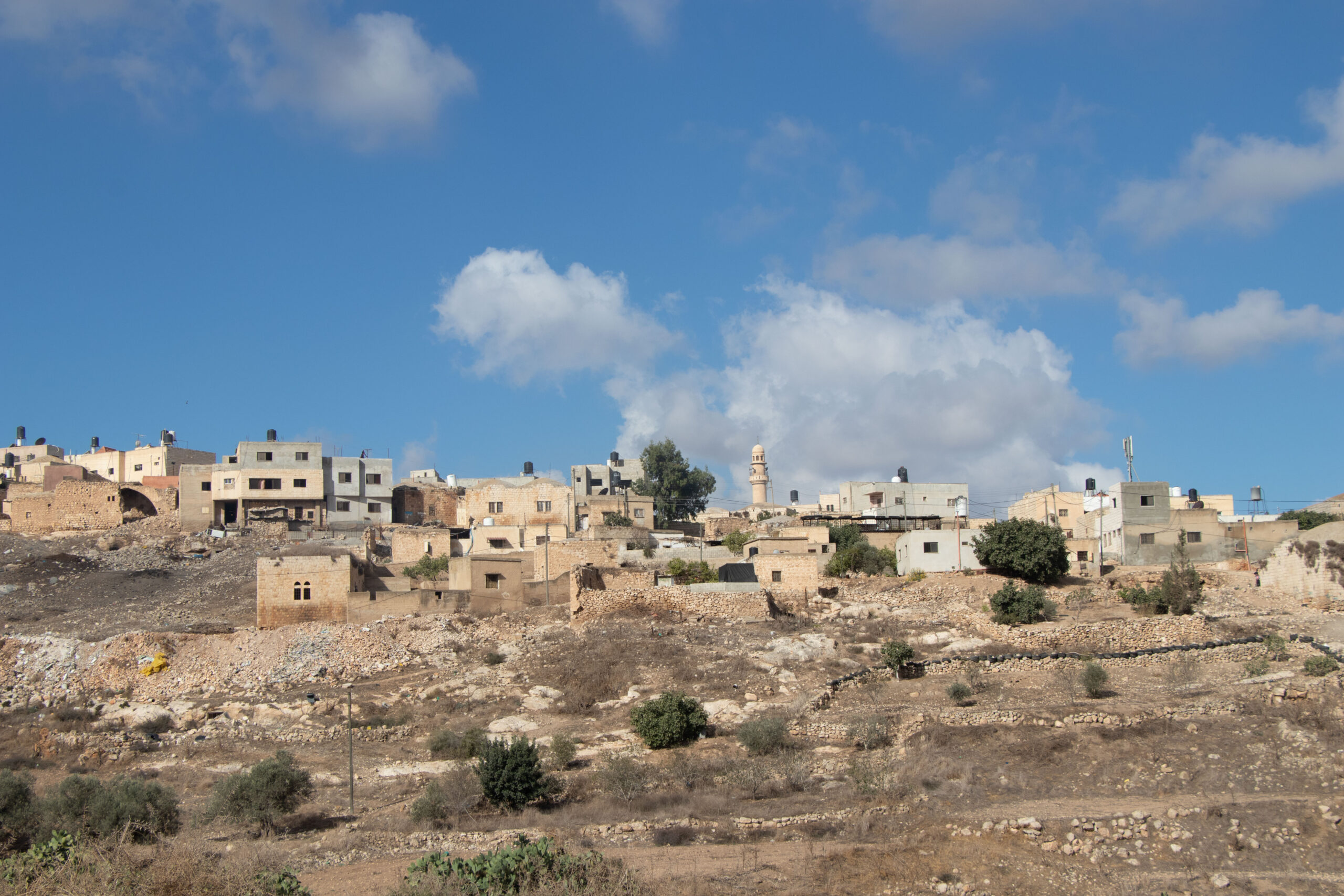
The village itself is surrounded by forest and greenery, such as pine trees, cypress, and wild bushes and trees. Beneath your feet, you’ll find brown soil and white rock, shaped over many years by rain and water. At the top of the mountain in this bustling village, the smell of trees and rain is constant. You get the sense of being so close to the sky that you could touch the clouds and become wrapped up in the colorful beauty of the land.
Olive Farm Harvest Season in Raba
The anticipation in the village mounts as the olive harvest approaches in fall. As in other areas of Palestine, people flock to their family olive farm during this time – some full-time farmers, others hustling to maintain sustainable farming alongside their regular jobs. It is a way of life for most, as even if you don’t own an olive farm, you likely have family members or friends who do. While the sale of olive oil is important for their economy, it is also a cultural necessity – you’d be hard-pressed to find a Palestinian dinner table without olive oil accompanying the meal.
As people come together to harvest the fair trade olives, a sense of solidarity and resilience fills the air and creates an undeniable ambiance. Farmers spend their entire day at the farm, while their families join them in the evening as they leave work or school. Traditional meals are served on the farm during breaks under the colorful sky. People feel a sense of hopeful excitement for the completed harvest and joy in the process of contributing to it.
In the olive groves, there’s a sense of comradery and support. A visiting neighbor brings biscuits and juice to the Qassrawi family. “Ya’tekoum al ‘afeyh,” he says, meaning “May you have good health.”
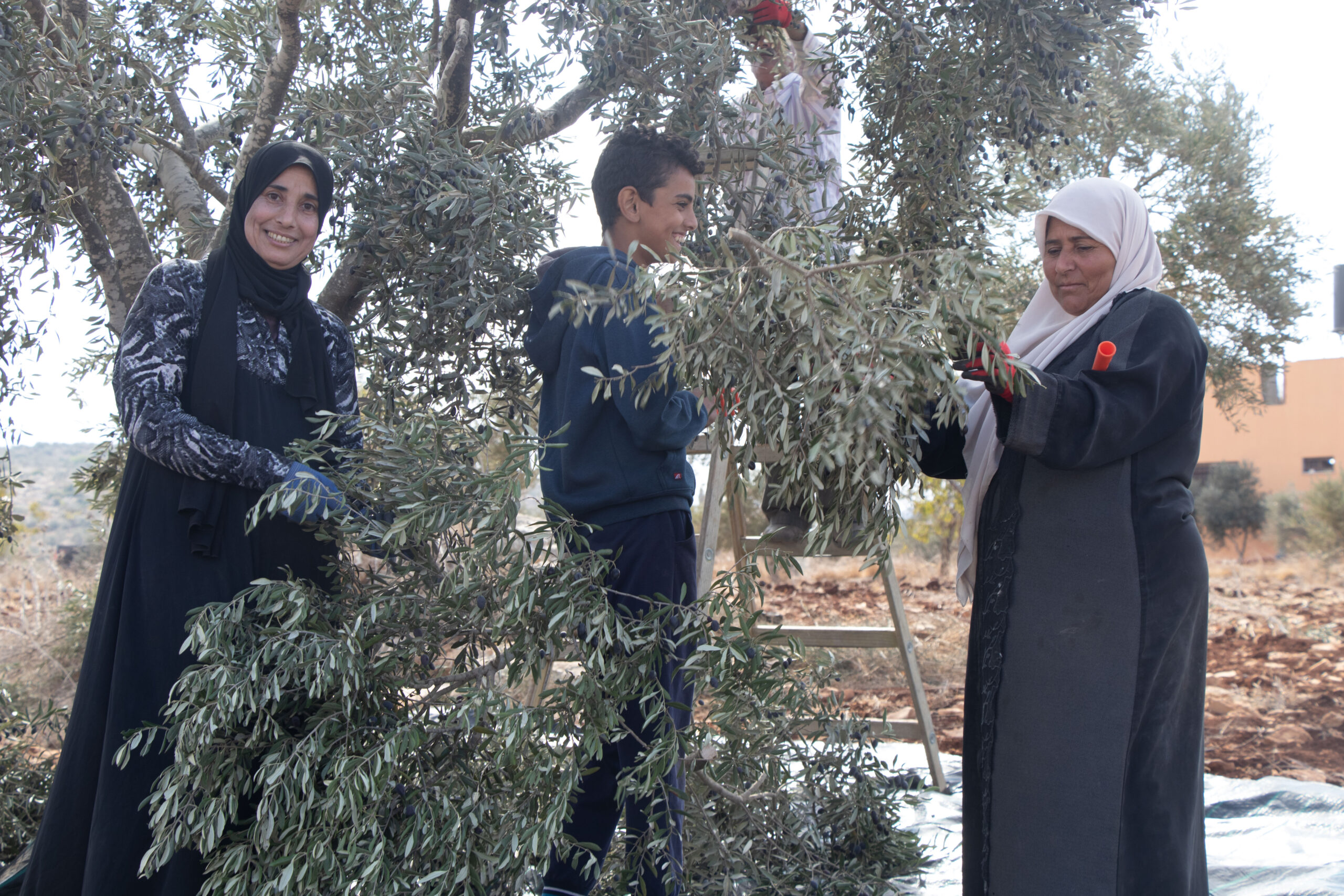
A Family Affair at Jaafar Qassrawi’s Olive Farm
For Jaafar, the day’s work starts in the early morning when the mountain is covered in a hazy fog. On the way to visit his farm, the village is full of the sounds of farmers heading to work, breezy wind, and birds singing from the tops of trees.
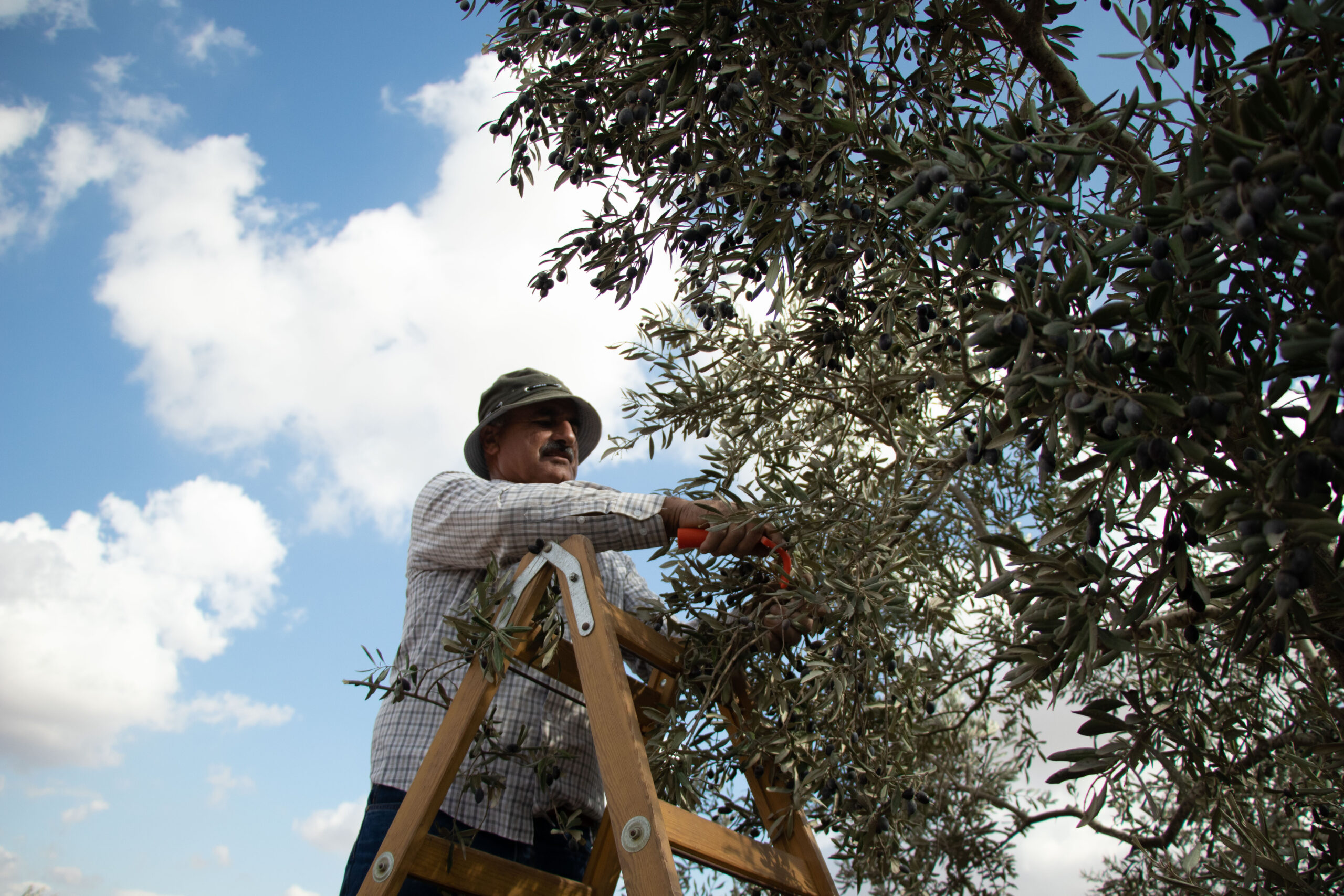
At 58 years old, Jaafar has over 30 years of experience with sustainable farming on his olive farm. When he was 18, his father passed away and he took upon the responsibility of caring for his family by stewarding the family farm. Accompanied by his mother, he learned to preserve and cultivate the land.
This responsibility empowered Jaafar to both care for his family and build a family of his own, passing down a love of the land to them as it was to him. He notes,
As long as I live, I will teach my children the love for the land. I give each one of them an olive seedling from a young age, and I let them plant it, water it and take care of it. This is my way of teaching them how to care for trees, this is my legacy to them.
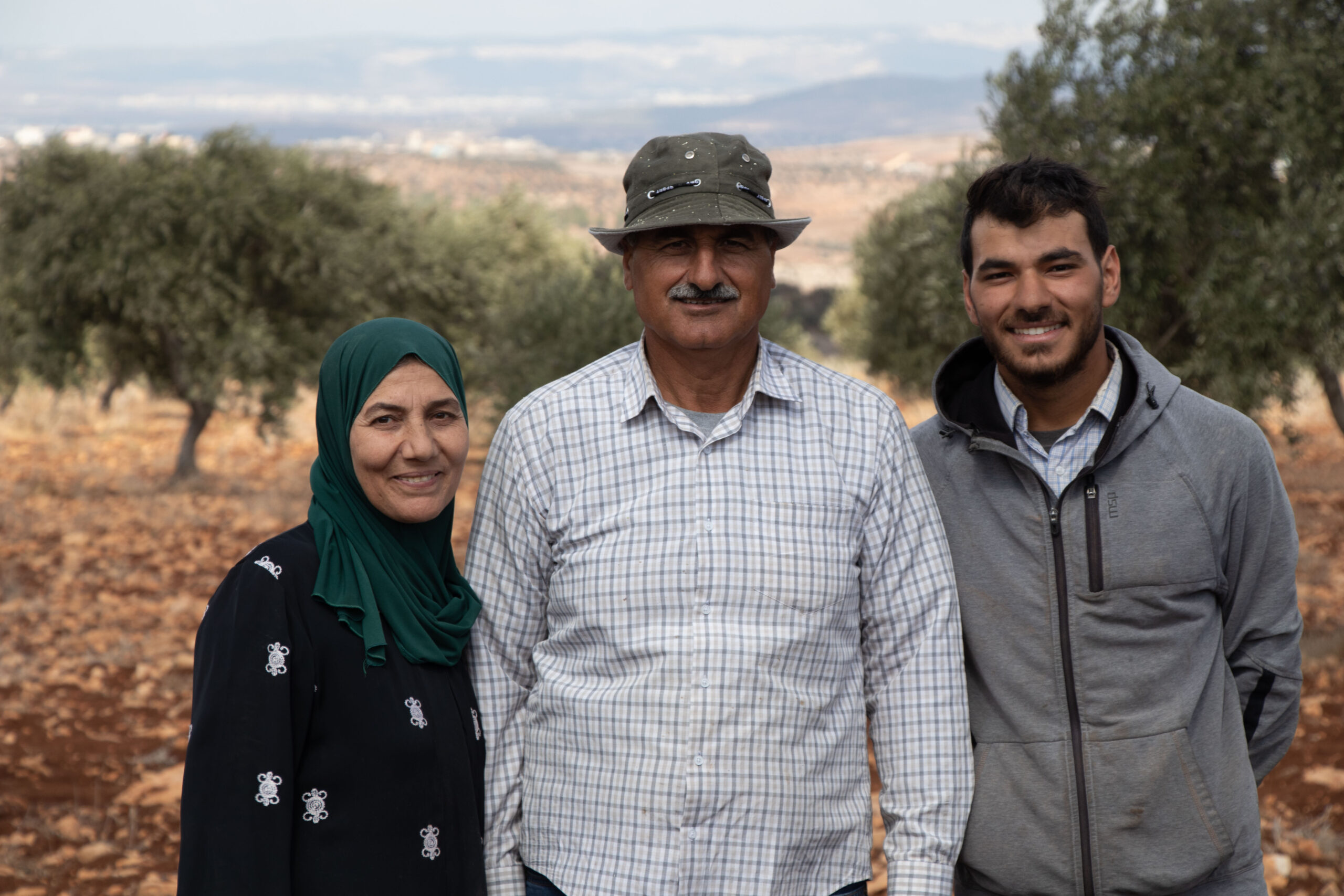
For Jaafar’s family, time spent spreading tarps under the trees, picking olive fruits, and collecting them on the tarps is a time of connection. The entire family works together on one tree, the air filled with their conversation and laughter. When asked what the land means for Jaafar he responded with one word: “Life.”
The olive fields are everything to Jaafar, from family time to time spent alone on the ancient land.
I walk alone among my trees, the sky embraces me, and a breeze of cold air wipes my face to relieve the fatigue of this difficult day, these moments are nothing but cure. Yes, it is cure for me.
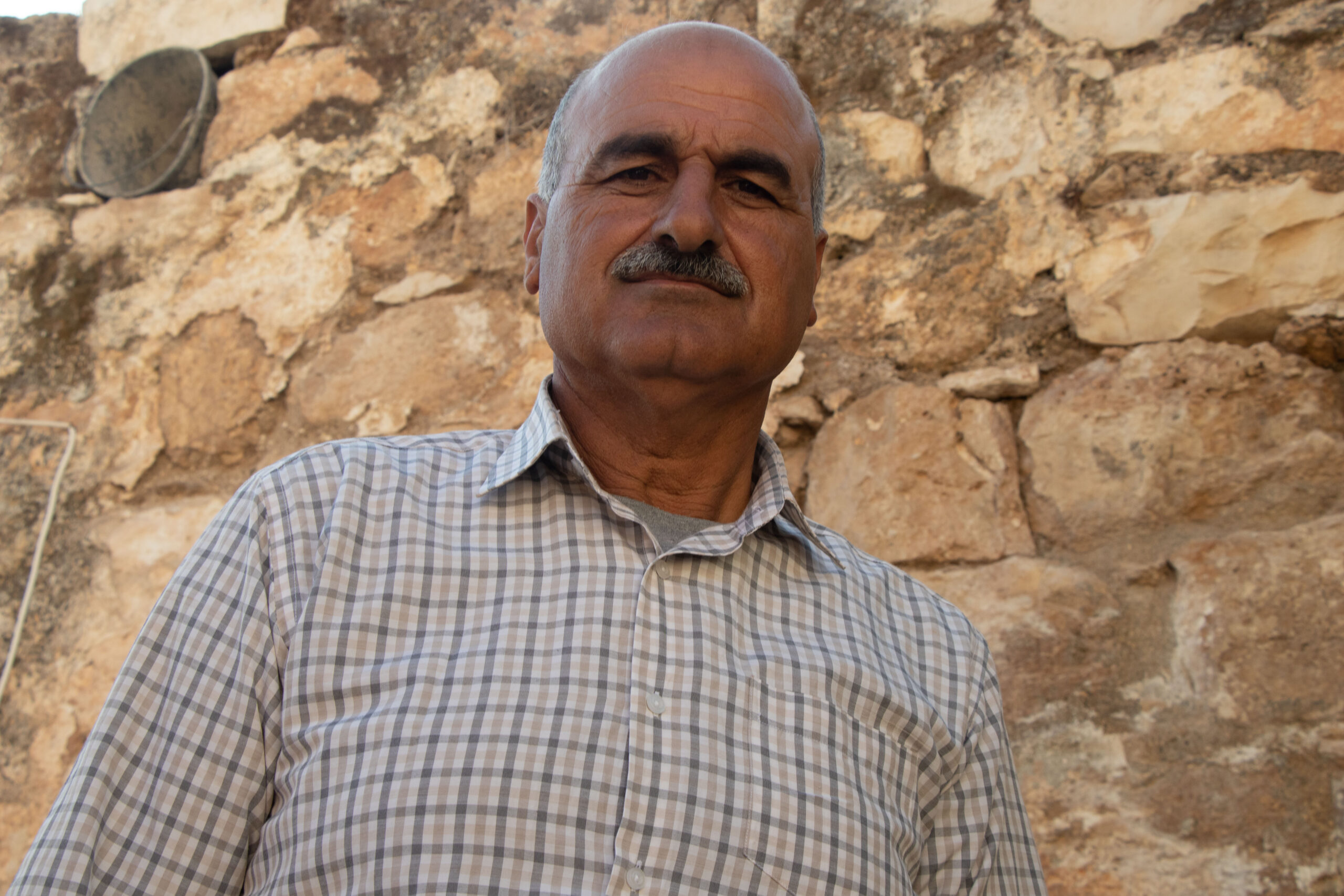
Fair Trade & Canaan’s Impact
At Canaan, our mission is to respect the land, the agriculture we grow on it, and the hard-working farmers who make it all possible. We partner with farmers, applying fair trade principles to honor their work in sustainable farming.
Jaafar knows first hand the difference of working with a company that treats farmers this way. ”Before Canaan it was difficult dealing with olive oil traders. We love the respect we’re getting from Canaan – paying fairly, exactly to the penny, and on time. It’s so much more comforting and convenient for us to work with a company like Canaan.”
Jaafar is quick to note that every variation of Palestinian olive oil is wonderful. Carefully grown and harvested during the window for the best flavor, October 20th to November 10th, Palestinian olive oil has a distinguished aroma and complex flavor. This is made possible by the large spaces that the olive trees grow in, with plenty of space between each tree – something that isn’t often respected by farmers in other regions of the world, where profit is valued over quality.
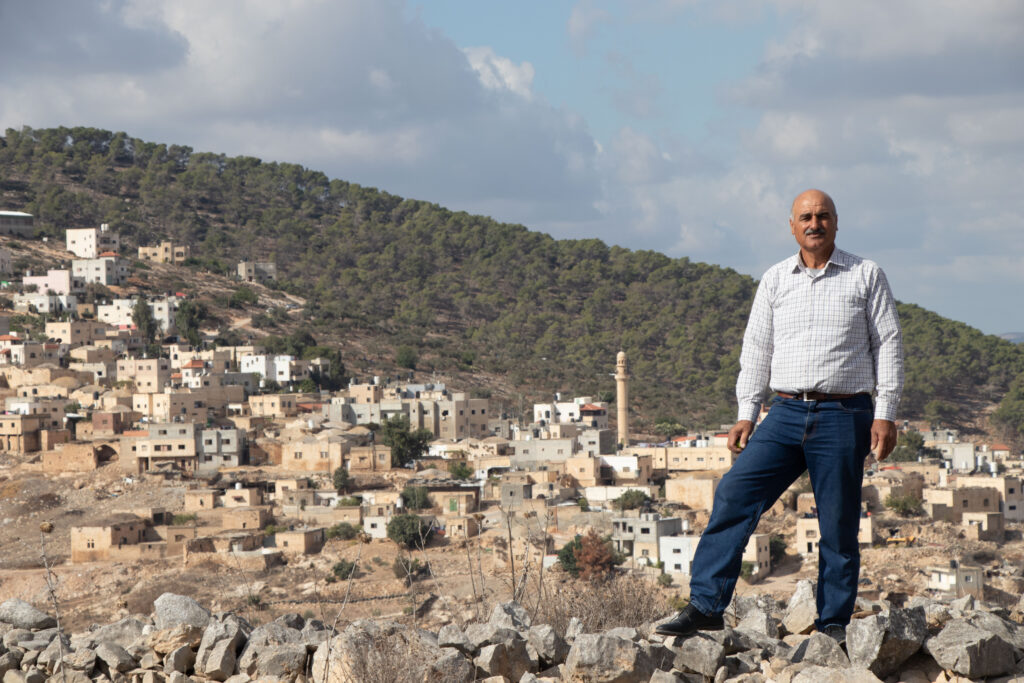
Jaafar says that he appreciates the way Canaan markets his olive oil, opening the door for him to enter the global market and increase productivity in a way that was not previously possible.
“My son lives in Germany and my dream is to deliver my olive oil to him through Canaan.”
By supporting sustainable farming on an olive farm like Jaafar’s, Canaan shares incredible olive oil with the world through a respectful partnership, guided by fair trade principles. Through this relationship, Canaan helps farmers reach their goals and dreams – one bottle of olive oil at a time.

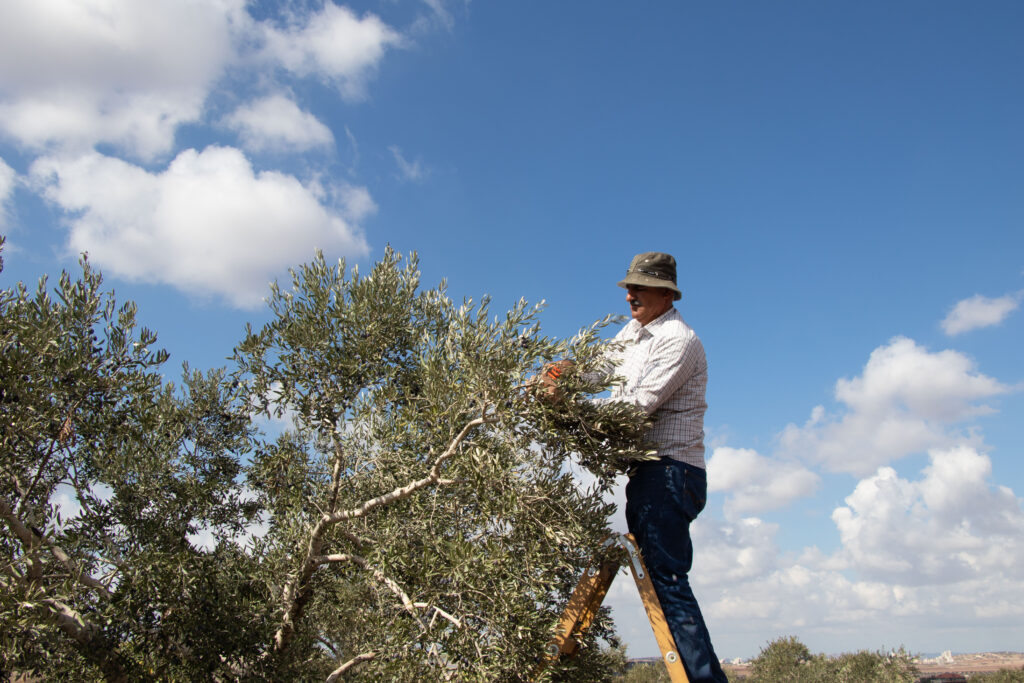
12 kilometers from Jenin sits the village of Raba and in it, Jaafar Qassrawi’s family olive farm. For Jaafar, the olive farm is much more

A beautiful historical rural village located in the western part of the West Bank between Salfit and Ramallah has its identity through having wild mountains

